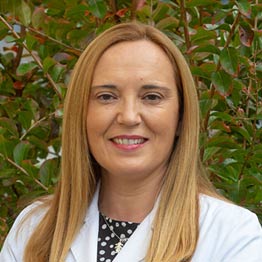Objectives


METABOLIC HETEROGENEITY
Study of the different factors contributing to metabolic heterogeneity, including Genetics, epigenetics, microbiome, lifestyle, dietary intake, psychological factors, physical exercise and environmental exhibition .

TOOLS
development of tools for the diagnosis and individualized treatment of nutritional status, lifestyle and health, and the consequent personalized nutritional recommendation.

RESEARCH NUTRITIONAL
research in vulnerable populations and in special physiological situations.
Lines of research


design of tests based on omics technologies that allow personalizing the approach to metabolic diseases.

design of new personalized nutritional strategies based on phenotypic and omic profiles to combat obesity and prevent associated diseases.

developmentThe validation and application of new technologies and dietary tools focused on the improvement of eating behavior, weight control, satiety and self-control.
Expected results

 Identification of biomarkers related to individual susceptibility to develop obesity and related pathologies, predict individualized response to various treatments, and identify new compounds and probiotics that may be useful in the prevention and treatment of these pathologies.
Identification of biomarkers related to individual susceptibility to develop obesity and related pathologies, predict individualized response to various treatments, and identify new compounds and probiotics that may be useful in the prevention and treatment of these pathologies.
 design from tests genetic, epigenetic and microbiota.
design from tests genetic, epigenetic and microbiota.
 development from personalized nutritional strategies against obesity, insulin resistance, non-alcoholic hepatic steatosis and other pathologies related to aging and inflammation.
development from personalized nutritional strategies against obesity, insulin resistance, non-alcoholic hepatic steatosis and other pathologies related to aging and inflammation.
 development from new technologies and theoretical-practical strategies aimed at controlling intake and satiety as part of the process of habit change.
development from new technologies and theoretical-practical strategies aimed at controlling intake and satiety as part of the process of habit change.
Team researcher
 → Fermín Milagro (manager) → Fermín Milagro (manager) |
 → Itziar Abete → Itziar Abete |
 → Eva Almirón → Eva Almirón |
 → Marta Cuervo → Marta Cuervo |
 → Sonia García Calzón → Sonia García Calzón |
 → Roncesvalles Garayoa → Roncesvalles Garayoa |
 → Mª Soledad García Unciti → Mª Soledad García Unciti |
 → Amelia Martí → Amelia Martí |
 → Mª Ángeles Zulet → Mª Ángeles Zulet |
|
 → Diego Messina Lombino → Diego Messina Lombino |
|
 → Verónica Ciáurriz → Verónica Ciáurriz |
 → Ana Lorente → Ana Lorente |
|
 → María Zabala → María Zabala |
||
|
||
Paola M. Mogna
Natalia Vázquez
Jaime Alonso-Allende
Lara Carasa
Gabriela Fraiz
Carolynne Teixeira
Iasmim Campos
Gabriela Robayo Cañizares
Marian Pueyo Arias
Contact
Fermín Milagro Yoldi
manager from area
fmilagro@unav.es
C/ Irunlarrea, 1
31008 Pamplona, Spain
+34 948 425600
Contact

 →
→  → Adriana Andrés Arija
→ Adriana Andrés Arija